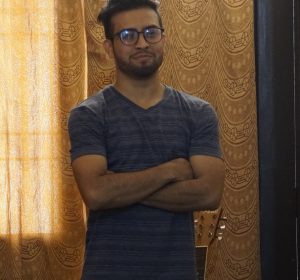Jul 5, 2018 14:53 UTC
| Updated:
Jul 5, 2018 at 14:53 UTC
Experts: “Ethereum killer” needs to work on its governance issues or risk losing users
EOS blockchain, based in Hong Kong, has been ruthless in the past couple of weeks with its governance. The EOS blockchain activated its mainnet on June 14, and immediately after it froze seven accounts on the mere suspicion that they belonged to thieves who had stolen funds from users.
Soon after, the block producers who are people maintaining the blockchain, suspended 27 more accounts on June 22, with a very vague justification saying “logic and reasoning for this order will be posted at a later date.” EOS is often called “Ethereum killer” since it is a fierce rival of Ethereum.
The crypto community is agitated with this move of freezing accounts without any legit justification. This control by a centralized agency violates the decentralization aspect of blockchain which is its main asset.
The suspensions have led to users selling off their EOS cryptocurrency, which has left investors who participated in its initial coin offering (ICO), empty-handed.
The EOS blockchain is a constitutional mess at the moment, due to the lack of governance. Most of its problems are caused by the uncertainty surrounding the chain of command of its “stakeholders.” The decision-making powers rest with too many on the EOS blockchain. There’s a team of 21 chosen block producers who keep the platform running but there is also a governing body called EOS Core Arbitration Forum (ECAF) which helps in resolving disputes.
The first seven accounts frozen by the block producers was done unanimously without getting the go-ahead from ECAF first. The next incident saw a reversal where the ECAF prohibited block producers from processing transactions of the 27 additional accounts, without giving any justification for the order.
ECAF is being called a mistake and Block.one wants to do away with the existing rules and replace them with a new governance framework, with CTO Dan Larimer proposing a version 2.0 of the EOS constitution.
Paul Griffin, director of Singapore Management University’s Masters of IT in the Business program said that “If there is too much-unexplained ruling or censuring, people will stop buying into the EOS cryptocurrency – probably rather quickly,” he warns.
Freezing accounts without proper authorization is “worrisome,” says Griffin, because “people buying into the cryptocurrency would want to know under what circumstances accounts may be blocked.” He compares this to PayPal’s tendency of suspending accounts while it investigates any suspicious activity, which can be frustrating to users.
Although a centralization process can be adopted with a blockchain, Griffin argues that it makes “no sense as everyone would still have to trust the central authority. They might as well use other technology instead of the blockchain.”
He continues, “For people to use the blockchain, there must be trust – which means the governance of the blockchain must be clear and robust. Time will tell if trust is being misplaced or not. And of course, if trust is lost, then the value of cryptocurrency will be lost as well.”
Some, however, haven’t given up hope on EOS. Anndy Lian, CEO of Singapore-based distributed platform company Linfinity, still believes that EOS blockchain made the account suspension decisions with its users’ welfare in mind.
“EOS froze those ‘criminal accounts’ to secure and protect people’s property… I believe EOS is doing the right thing” he said.

























































